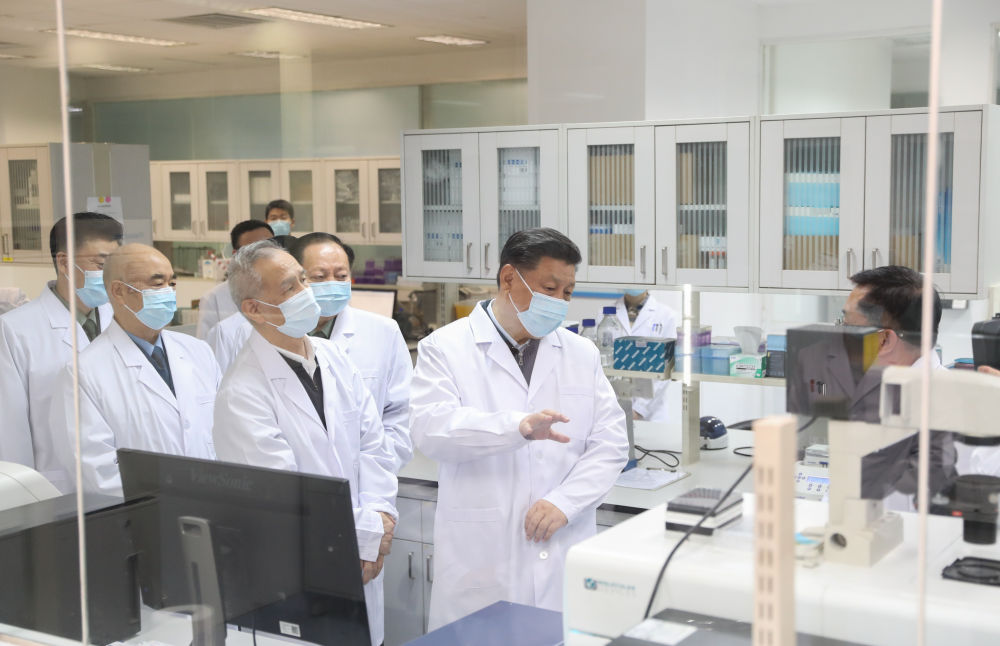Public health gets boost in war on virus


Particularly, Xi stressed the pressing need for boosting early-stage epidemic monitoring and warning capacity, including efforts toward a better monitoring system for epidemics and public health emergencies, and a better monitoring mechanism for diseases of unknown cause and abnormal health incidents.
Xue Lan, dean of the School of Public Policy and Management at Tsinghua University, said that Xi's remarks constitute a strategic guideline to build a stronger public health system and a map for advancing specific reforms in the next stage.
By drawing experience and lessons from responding to the COVID-19 outbreak, Xi has shown directions for what the country needs to do to improve its governance capacity in public health, Xue said.
Improving the public health system so as to provide people with better healthcare services has been the main policy focus of the CPC Central Committee. Xi, who is also general secretary of the CPC Central Committee, said in his report to the 19th CPC National Congress in 2017 that "a healthy population is a key mark of a prosperous nation and a strong country".
At the Fourth Plenary Session of the 19th CPC Central Committee in October, Xi urged efforts to modernize the nation's governance system and capacity to ensure the Party's long-term governance and the country's long-lasting peace and stability.
Speaking in February at a meeting of the Central Committee for Deepening Overall Reform, Xi said the fight against the epidemic is a major test of the country's governance system and capacity. He called for concrete efforts to raise the capacity for dealing with the major public health crisis.
During an inspection tour of Shanxi province last month, he urged more efforts to intensify social governance at the community level, underscoring the importance of community support in epidemic prevention and control.
Zhou Yeqin, a professor at Nanjing Medical University in Nanjing, capital of Jiangsu province, said Xi gave equal importance to social governance capacity and medical treatment capability in building a stronger public health system. His idea indicates the right practical logic in science-based epidemic prevention and control, Zhou told People's Daily.
Zhang Zhanbin, director of the School of Marxism Studies at the National Academy of Governance, said as the country is striving to coordinate its efforts in epidemic control and social and economic development, it is both strategically and realistically significant and also imperative to build a stronger people-centered public health system.
Fair and accessible healthcare services should be a part of the nation's Healthy China Initiative and also reflect achievements in modernizing the governance system and capacity, Zhang added.
Xi vowed in his report to the 19th CPC National Congress to carry out the initiative to promote people's health. According to a guideline released by the State Council in July 2019, it includes 15 special campaigns to be launched before 2030 to "intervene in health influencing factors, protect full-life-cycle health and prevent and control major diseases".
- Beijing courts boost efforts to resolve livelihood-related cases
- Reminder tips from Weifang police spark buzz on Xiaohongshu
- Former head of national tobacco body stands trial on bribery charges
- China warns DPP's attempt to seek 'Taiwan independence' will be futile
- Consistent progress seen in environmental protection
- Former head of China's State Tobacco Monopoly stands trial for graft, abuse of power





































